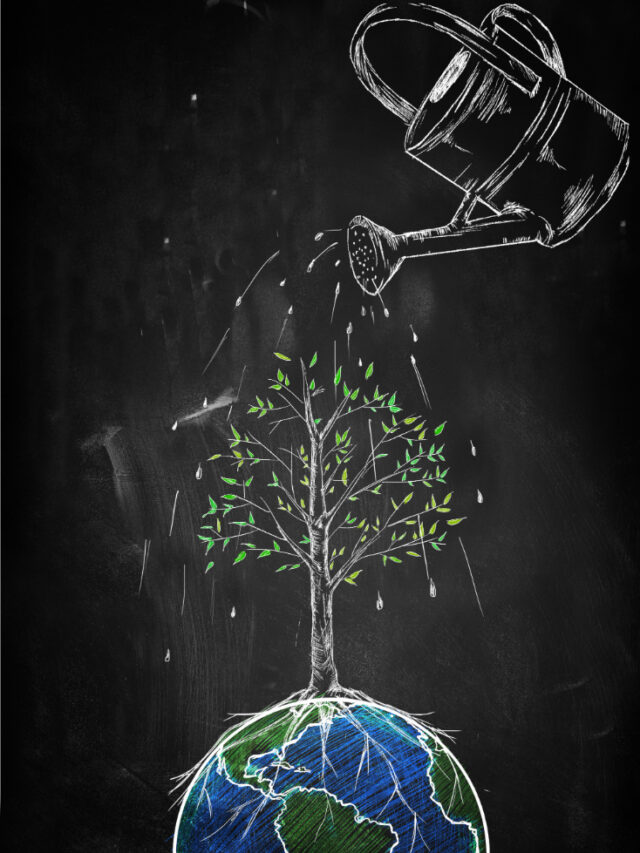Highlights
- Heat stress can also cause a loss of biodiversity.
- It is wake-up calls and remind us of the urgent need to address climate change.
- Adapting to heat waves through improvements.
The severity of climate change and its impact on heat waves. In recent years, the severity and frequency of heat waves have become increasingly apparent, a stark reminder of the urgent need to address climate change. Our planet is undergoing unprecedented changes, mostly due to human activities such as deforestation, pollution, and unsustainable activities.
These activities have disturbed the delicate balance of our environment, causing global temperature to rise and several negative consequences.
Understanding the causes of heat waves One of the main causes of heat waves is the greenhouse effect. Man-made greenhouse gases, such as carbon dioxide, trap heat in theEarth’s atmosphere, preventing it from escaping into space. This trapped heat causes a gradual increase in global temperatures, leading to extreme weather events.
The intensification of heat waves also plays an important role in deforestation. Trees act as natural air conditioners, providing shade and releasing moisture through evaporation.Widespread deforestation interrupts this cooling process and exacerbates the effects of heat waves
Effect of heat waves
Heat waves have far-reaching consequences for both the environment and human health. As temperatures rise, ecosystems suffer from drought, reduced harvests, and increased vulnerability to wildfires. Heat stress can also cause a loss of biodiversity, as many species find it difficult to adapt to rapidly changing conditions. Heat waves have a profound effect on human health, as heat-related illnesses and deaths increase.
Vulnerable population groups, such as the elderly, children, and people with health problems, are particularly at risk. Heat waves can also strain infrastructure and affect energy systems, traffic, and water supplies. To protect us during heat waves to mitigate the harmful effects of heat waves, it’s important to take proactive steps to protect yourself. Here are some tips to stay safe and cool during extreme heat:
Stay indoors during peak hours: Avoid going outside during the hottest times of the day, usually between 10 AM and 4 PM, when the sun’s rays are at their strongest.
Wear appropriate protective equipment: Wear light-coloured clothing, widebrimmed hats, and sunglasses when outdoors. Apply a high-SPF sunscreen to protect your skin from harmful UV rays.Stay hydrated and eat cooling foods: Drink plenty of water to stay hydrated, even if you’re not thirsty. Eat water-rich foods like fruits and vegetables to keep your body cool from the inside.
Create a cool environment: Use fans, air conditioning, or natural ventilation to maintain a comfortable indoor temperature. Keep curtains or blinds closed during the day to avoid the heat of the sun.
Check on vulnerable people: Stay in touch with elderly family members, neighbors, or friends who may need help during heat waves. Provide support and make sure they stay cool and hydrated.
The urgent need for action
To protect our planet, Heat waves are wake-up calls and remind us of the urgent need to address climate change and its consequences. As individuals, we can make an impact by adopting sustainable practices and leading change. Planting trees, reducing carbon footprints, and preserving natural habitats are effective steps to curb heat waves and restore environmental balance. We must prioritize forest conservation both locally and globally and avoid the littering of mountains and natural water bodies.
Consequences of Heatwaves in the Future
If the necessary measures are not taken, the future consequences of heat waves can be serious both for people and for the Earth.
The consequences of the Heatwaves effect in the future:
Increase in heat-related illnesses and deaths: Heat waves can cause an increase in heat-related illnesses such as heat exhaustion, heat stroke, and dehydration. Without adequate measures to mitigate the effects of extreme heat, the number of illnesses and deaths will continue to rise.
Health systems strain: As heat waves increase in frequency and intensity, health systems face increasing pressure to provide care for people suffering from heatrelated illnesses. This burden can affect the availability of medical resources and potentially burden health facilities.
Economic losses: Heat waves can have a significant economic impact. Industries such as agriculture, tourism, and outdoor recreation face challenges due to extreme heat. Loss of crops, reduced productivity, and reduced tourism revenues can cause economic losses at the local, regional, and national levels.
Water scarcity: Heat waves exacerbate water scarcity problems. High temperatures increase the rate of evaporation, which reduces water availability for agriculture, drinking water supplies, and ecosystems. This can lead to conflicts over water resources and further burden vulnerable communities.
Ecosystem disruption: Heat waves disrupt ecosystems and biodiversity. Many species are sensitive to temperature changes, and prolonged heat waves can lead to habitat loss, reduced food availability, and increased risk of extinction for certain plants and animals. This disruption can have cascading effects on entire ecosystems.
Stronger forest fires: heat waves create favorable conditions for forest fires to start and spread. Higher temperatures combined with dry vegetation increase the likelihood of fires and make them more difficult to control. It endangers lives, properties, and the ecosystem.
Feedback loops and climate change
Heat waves promote feedback loops that intensify climate change. For example, when heat waves melt ice in the polar regions, less sunlight is reflected back into space, leading to further warming. These feedback loops can push the climate system toward irreversible tipping points, causing even more extreme weather events. Mitigating these future impacts requires addressing the root causes of climate change.
This means transitioning to cleaner and renewable energy sources, reducing greenhouse gas emissions, implementing sustainable farming practices, and promoting international cooperation against climate change.
In addition, adapting to heat waves through improvements in
Urban planning
Heat-resistant infrastructure
Public health strategies is crucial.
Improving early warning systems, community preparedness, and heat wave response plans can help minimize the impact on human health and well-being. We must work together and take immediate action to reduce our carbon footprint, protect natural resources and improve our resilience to heat waves. In doing so, we can mitigate the future consequences and create a more sustainable and livable world for ourselves and future generations.








